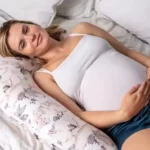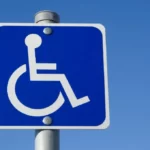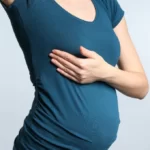
Cramps are a common occurrence for many women during their menstrual cycles. These abdominal pains can range from mild to severe and often lead to discomfort and inconvenience. While cramps are a typical symptom experienced during menstruation, it’s essential to understand their causes and whether they fall within the realm of normalcy. In this article, we delve into the topic of are cramps after period normal, their underlying reasons, and when to seek medical advice.
Related: What Do Early Pregnancy Cramps Feel Like?
What Are Menstrual Cramps?
Menstrual cramps, also known as dysmenorrhea, are throbbing or cramping pains in the lower abdomen that many women experience just before and during their menstrual periods. The discomfort can range from mild to severe and can interfere with everyday activities for a few days every month. These cramps result from the uterus, which is a muscle, contracting to shed its lining, leading to the release of prostaglandins, hormone-like substances that trigger inflammation and pain responses. If the uterus contracts too strongly during the menstrual cycle, it can press against nearby blood vessels, briefly cutting off oxygen to the uterus. This lack of oxygen causes the pain and cramping.
Related: What Does Back Labor Feel Like?
Is it normal to experience Post-Menstrual Cramps?
It is important to note that experiencing cramps after period is considered relatively normal. These cramps, known as post-menstrual cramps, may persist for a few days following the end of menstruation. The severity and duration can vary among individuals, with some women experiencing mild discomfort while others endure more intense pain.
Related: How To Strengthen Uterus For VBAC?
How to differentiate between Normal and Abnormal Cramps after Period?
To differentiate between normal and abnormal cramps after period, consider the following factors:
- Intensity and Duration:
- Normal cramps after period are usually mild and short-lived, lasting for a few days at most.
- Abnormal cramps may be more severe and persistent, lasting longer than a few days.
- If the pain is debilitating and interferes with your daily activities, it may indicate an underlying condition.
- Response to Pain Medication:
- Normal cramps after period can often be relieved with over-the-counter pain medication, such as ibuprofen or acetaminophen.
- If the cramps do not respond to over-the-counter medication or require stronger prescription pain relief, it may suggest an underlying issue.
- Accompanying Symptoms:
- Normal cramps after period may not be associated with other significant symptoms.
- Abnormal cramps may be accompanied by additional symptoms such as nausea, vomiting, heavy menstrual bleeding, pelvic pain, painful intercourse, or an enlarged uterus.
- Frequency and Pattern:
- Normal cramps after period may occur occasionally and sporadically.
- Abnormal cramps may happen consistently after each period or at different times throughout the menstrual cycle.
- Underlying Conditions:
- Normal cramps after period are typically not indicative of any underlying conditions.
- Abnormal cramps may be a sign of conditions like endometriosis, adenomyosis, ovarian cysts, uterine fibroids, or pelvic inflammatory disease (PID).
Related: Can A Pregnant Woman Swim In A Chlorine Pool?
What are the potential causes of Post-Menstrual Cramps?
Several factors contribute to post-menstrual cramps, including:
- Uterine fibroids: Uterine fibroids are non-cancerous growths that develop in the uterus. These fibroids can cause pain and cramping, including post-menstrual cramps.
- Endometriosis: Endometriosis is a condition where the tissue lining the uterus (endometrium) grows outside the uterus, often affecting the ovaries, fallopian tubes, and pelvic area. This abnormal tissue growth can lead to menstrual pain and post-menstrual cramps.
- Adenomyosis: Adenomyosis is a condition in which the inner lining of the uterus (endometrium) breaks through the muscle wall of the uterus. This can cause heavy, painful periods and result in post-menstrual cramps.
- Ovarian cysts: Ovarian cysts are fluid-filled sacs that can develop on the ovaries. Large cysts or those that rupture can cause pelvic pain and cramping, including post-menstrual cramps.
- Uterine or endometrial polyps: Uterine or endometrial polyps are small growths that form in the lining of the uterus. These polyps can cause irregular bleeding and cramping, including post-menstrual cramps.
- Pelvic inflammatory disease (PID): Pelvic inflammatory disease is an infection that affects the female reproductive organs, usually caused by sexually transmitted infections (STIs). PID can lead to pelvic pain and cramping, including post-menstrual cramps.
- Cervical stenosis: Cervical stenosis refers to a narrowing of the cervix, the lower part of the uterus. This narrowing can cause blockage and result in pain and cramping, including post-menstrual cramps.
- Ectopic pregnancy: An ectopic pregnancy occurs when a fertilized egg implants itself outside the uterus, typically in the fallopian tubes. This condition is a medical emergency and can cause severe abdominal pain, including post-menstrual cramps.
- Implantation: Implantation refers to the attachment of a fertilized egg to the lining of the uterus. Some women may experience mild cramping during this process, known as implantation cramps.
Related: How To Get Rid Of Linea Nigra? Full Guide
What are some Self-Care Tips for Cramps after Period?
Taking care of yourself during and after your period can help alleviate cramps and improve your overall well-being. Here are some self-care tips to consider:
- Apply heat: Applying heat to the lower abdomen or back can help relax the muscles and alleviate cramping. You can use a heating pad, hot water bottle, or take a warm bath.
- Massage: Massaging the lower abdomen with essential oils or a massage oil can help relax the pelvic muscles and alleviate cramping. You can also perform self-massage over the abdomen.
- Over-the-counter medication: Over-the-counter pain relievers such as ibuprofen or acetaminophen can help alleviate cramps.
- Exercise: Light exercise such as walking, yoga, or stretching can help alleviate cramps and improve mood.
- Avoid certain foods: Avoiding certain foods such as caffeine, salty foods, and carbonated beverages may help alleviate cramps and decrease tension.
- Get enough vitamins and minerals: Eating a healthy diet that includes vitamins and minerals such as magnesium, calcium, and omega-3 fatty acids may help reduce cramps.
- Reduce stress: Reducing stress through exercise, yoga, deep breathing exercises, meditation, or counseling may help alleviate cramps.
Are there any Dietary Changes that can help alleviate Cramps after Period?
Yes, there are dietary changes that can help alleviate cramps after period. Here are some foods that may help:
- Anti-inflammatory foods: Foods such as salmon, vegetables, fruit, and olive oil can help minimize menstrual cramps by reducing inflammation in the body.
- Fruits and vegetables: Eating light, healthy fruits and vegetables that won’t be heavy in your stomach can help decrease inflammation in the body and can help menstrual cramps.
- Whole grains: Whole grains can help block the reabsorption of estrogens, which can reduce estrogen levels and subsequent menstrual cramps.
- Legumes: Eating beans, lentils, and other legumes can benefit your health in a variety of ways, including when you’re on your period. Research suggests that these nutrients can help with period cramps.
- Calcium-rich foods: Most milk and milk products, such as yogurt and cheese, are great sources of calcium. Some evidence suggests that calcium supplements may be able to help with menstrual symptoms like period cramps.
- Cruciferous vegetables: Broccoli, kale, Brussels sprouts, and other cruciferous vegetables are good sources of fiber, calcium, and magnesium. These vegetables are also high in iron. Blood loss during your period can significantly lower your overall iron levels, so it’s important to get it in your diet.
When to Seek Medical Advice for Cramps after Period?
While cramps after period are generally normal, certain circumstances warrant medical attention. Consult a healthcare professional if you experience:
- Severe cramping that starts within a few months of one’s first period.
- Cramping that does not respond to treatment with ibuprofen/tylenol (or other over-the-counter therapies).
- Cramps that become worse over time.
- Cramps that turn into pain in-between periods.
- Pelvic pain that lasts for more than one or two days after your menstrual period ends.
- Cramps that last longer than common menstrual cramps and are often caused by a reproductive system disorder or infection.
- Cramps that happen days or weeks after a period or at different times throughout the cycle.
Conclusion
In conclusion, experiencing cramps after period is generally considered normal, with post-menstrual cramps being a common occurrence for many women. Understanding the causes and distinguishing between normal cramps and potential underlying conditions is crucial for maintaining menstrual health. Remember to listen to your body, practice self-care, and consult a healthcare professional if you have any concerns or experience severe or unusual symptoms.
Frequently Asked Questions (FAQs)
What causes cramps after period?
Cramps after period can be caused by various factors, including secondary dysmenorrhea (conditions affecting the reproductive organs), ovulation pain, pelvic inflammatory disease (PID), adenomyosis, and implantation cramps.
Are cramps after period normal?
While mild cramping after period is generally considered normal, severe or persistent cramps may indicate an underlying condition and should be evaluated by a healthcare professional.
How long do cramps after period typically last?
The duration of cramps after period can vary from person to person. In most cases, they should subside within a few days. If the cramps persist or worsen, it is advisable to consult a doctor.
Can birth control help alleviate cramps after period?
Yes, certain forms of hormonal birth control, such as combination birth control pills or hormonal IUDs, can help reduce cramps after period by regulating hormone levels and reducing inflammation.
When should I be concerned about cramps after period?
If you experience severe or debilitating cramps after period, or if they are accompanied by other concerning symptoms such as heavy bleeding, fever, or unusual discharge, it is important to seek medical attention as it may indicate an underlying condition.
How can I prevent cramps after period?
While it may not be possible to completely prevent cramps after period, there are some steps you can take to potentially reduce their severity or frequency. These include maintaining a healthy lifestyle with regular exercise, managing stress levels, and maintaining a balanced diet.












